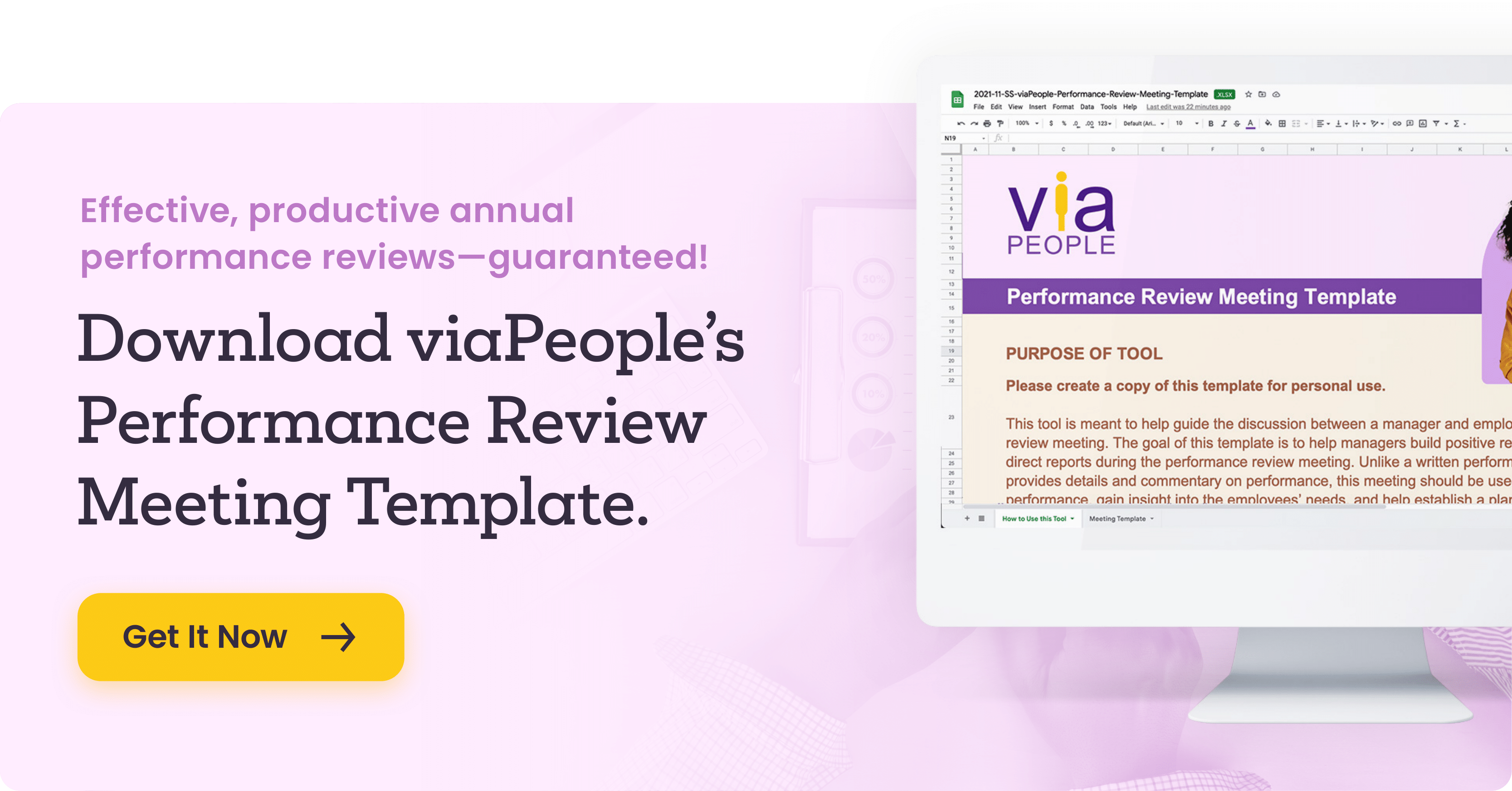Developmental Reviews vs. Performance Reviews and Why You Should Use Both
 Performance management is key for helping your employees thrive in their roles and helping your organization plan for a successful future. Effective performance management involves multiple tools at your disposal. Two critical tools are developmental reviews and performance reviews. Read on to learn about the distinct roles each of these review types can play for employees and your company.
Performance management is key for helping your employees thrive in their roles and helping your organization plan for a successful future. Effective performance management involves multiple tools at your disposal. Two critical tools are developmental reviews and performance reviews. Read on to learn about the distinct roles each of these review types can play for employees and your company.
What are developmental reviews?
Developmental reviews are an important means of helping employees grow. Also sometimes called performance development reviews, these reviews are focused on employee development and progression toward personal career goals.
Since these reviews are aimed at facilitating growth, they must identify an employee’s skill gaps or areas where they want to grow and outline how the employee can proactively address these areas. In this way, developmental reviews share some similarities with performance improvement plans. The key difference is that developmental reviews don’t only come into play to address performance problems. Even an employee who is thriving in their role can benefit from a developmental review that helps them further enhance their skills.
What are performance reviews?
Performance reviews are another important yet distinct tool in performance management. These reviews are focused on assessing an employee’s performance over a defined period.
Performance reviews usually evaluate an employee’s work according to predetermined measures of success in different areas. These areas are not created according to an employee’s own goals for their success but are created according to the demands of the job. More broadly, performance reviews can ensure an employee’s performance aligns with the organization’s strategic objectives.
From your organization’s perspective, performance reviews can also help you identify stand-out employees who deserve a promotion or pay raise so you can reward the right employees for their hard work, positive attitude, and other valuable traits.
→ Need help making your performance reviews actionable and effective? Download our performance review meeting template.
How do developmental reviews and performance reviews differ?
Let’s look in more detail at how developmental reviews and performance reviews differ from each other and why you should separate performance measurement and development. There are three main areas where these review types diverge:
1. Purpose
First, these review types have two distinct purposes. Performance reviews are meant to assess performance over a past time period, while developmental reviews are forward-focused and intended to help employees grow. Assessing an employee’s past or current performance and helping them develop for the future are both important parts of performance management.
2. Who Leads Them
Another way developmental and performance reviews differ is in who leads the review process. Performance reviews are led by managers, often with input from other leaders and the employee’s peers. Employees are mainly on the receiving end of the process. Developmental reviews, on the other hand, are led by employees, allowing them to define the areas they want to focus on and how they want to improve.
3. Level of Uniformity
Another key difference is in the uniformity—or lack thereof—between these two review types. For performance reviews, the focus areas tend to be consistent across all employees within the organization, department, or position, making calibration essential. With developmental reviews, content is tailored to each employee, so it’s quite possible that no two review discussions will be alike in the content areas. The topic areas may vary by individual.
Why are both review types important?
Both developmental reviews and performance reviews fulfill different purposes and can serve complementary roles. That’s why both are essential to a robust performance management system.
Research shows that providing employees with opportunities to grow and expand their skills has become the strongest driver of work culture. Professionals today want to work for a company that is invested in their long-term success. Providing employees with developmental reviews is an excellent way to facilitate that growth, leading to more satisfied and engaged employees and, quite possibly, a more productive and profitable company.
Performance reviews also serve an essential role for your organization and your employees. These reviews help you gauge how well employees’ performance is aligning with expectations and company standards. At the organizational level, this can help you identify patterns of success or gaps that need to be addressed. At the level of individual employees, it can let employees know how they’re doing and help your company with effective succession planning.
These review types can also work in tandem. For example, in a performance review, areas of improvement or areas in need of improvement may emerge that can help you create effective developmental reviews.
Together, these two review types can ensure employees are equipped with the opportunities, resources, and feedback they need to be successful and can ensure your company has the information it needs to plan for a successful future.
What makes an effective developmental review
Effective developmental reviews can deliver some real benefits to your employees and your company. But what makes a developmental review effective? These reviews should be:
- Constructive: Developmental reviews are forward-focused. So even if they identify skill or performance gaps, the overall bent should be a positive one since the purpose is to plan for future success.
- Actionable: Developmental reviews should also be goal-oriented and empower employees to take real steps toward improvement. Help employees create SMART goals to ensure their goals are actionable. SMART stands for specific, measurable, attainable, realistic and/or relevant, and time-bound.
- Personal: Developmental reviews should allow the employee to define success according to their own terms. So don’t force certain objectives on your employee through a developmental review. You can provide guidance, but allow the employee to define the ways they want to enhance their competencies, attitude, or other areas.
What makes an effective performance review?
What about performance reviews? What makes these reviews effective? Some key ways you can enhance the efficacy of performance reviews is by ensuring they are:
- Focused: Performance reviews can include several aspects of an employee’s performance. However, all of these areas should remain closely aligned with company standards and the employee’s job duties. In other words, make sure each part of your performance reviews is relevant and purposeful.
- Standardized: Performance reviews should also involve clear methods of measuring performance that are consistent from employee to employee. This means you should take steps to actively avoid bias and subjectivity. An effective way to do this is through performance calibration meetings where managers can receive feedback before sharing reviews with employees.
- Frequent: An annual performance review likely won’t paint the full picture of employee performance. Research shows that employees prefer more frequent feedback, and this can also provide your company with richer, more detailed information on employee performance. Implementing real-time feedback is the best way to reap the full benefits of performance reviews.
Enhance your approach to performance management with viaPeople.
Help your employees grow and feel well supported by making developmental reviews part of your approach to performance management. You should also prioritize performance reviews and follow best practices to ensure these reviews give employees and your company valuable information to help you plan for the future.
Conducting performance reviews can be a daunting process for managers, especially when it comes to meeting with employees to discuss feedback. We created a Performance Review Meeting Template to help managers confidently prepare for these meetings and follow a productive agenda for their conversations. Download your copy today!
Share this
You May Also Like
These Related Stories

5 Tips for Meaningful Mid-Year Performance Reviews

How Performance Reviews Shape Your Relationship With Your Employees


